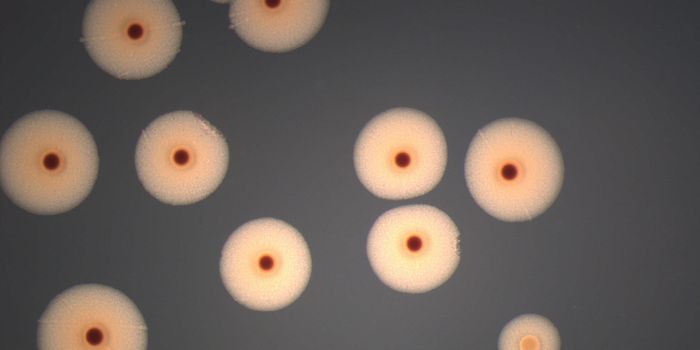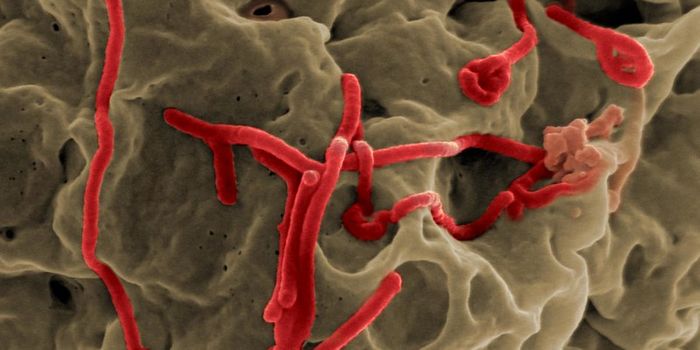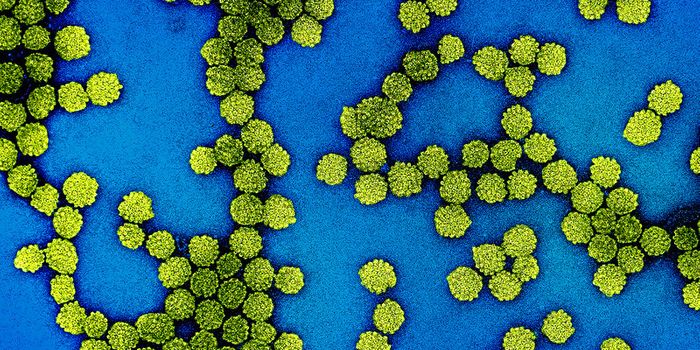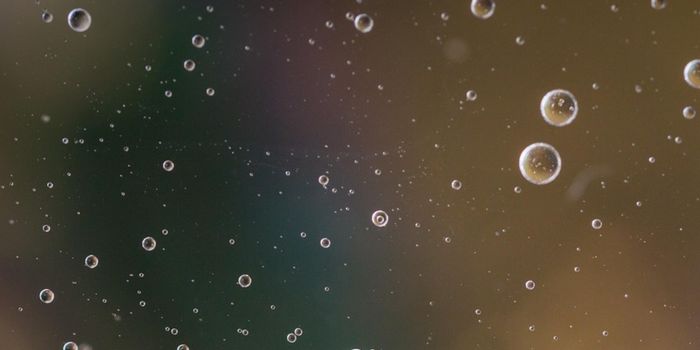Viruses Control Marine Bacteria by Turning Them Into "Zombies"
It's estimated that 90 percent of the biomass in the oceans is made up of marine microorganisms, a group that includes protists, bacteria, archaea, fungi, and viruses. Microbes lives in some of the most inhospitable parts of the ocean as well, including near hydrothermal vents and in glacial lakes. They serve a variety of important functions, and can help provide food to other marine organisms, and maintain the health of ecosystems.
The bacterial group known as SAR11 is thought to account for about one-third of all bacterial species found around the ocean's surfaces. A new study has suggested that at any given time, as many as 20 percent of the ocean's SAR11 bacteria are infected with viruses, which significantly lowers their numbers. The viruses seem to modify the bacteria dramatically, turning them into a kind of zombie cell group that is widespread in the oceans. The findings have been reported in Nature Communications.
This research team has previously identified a group of SAR11 bacteria that grow quickly at certain times, like during algal blooms. However, although they were growing really quickly, their abundance declined by about 90 percent within five days. The SAR11 cells appeared to have been destroyed by some kind of predator or infection. This research has identified what is to blame for these losses.
Viruses that infect bacteria cells are known as bacteriophages, and the study authors wanted to know if phages were to blame for the losses of SAR11. "Answering this seemingly simple question was methodologically very challenging," noted first study author Jan Brüwer, PhD.
When a phage infects a bacterial cell, it injects its genetic material into the bacterium. The, the machinery in the bacterial cell works to produce viral proteins found on the viral genome. The researchers traced this viral material. They were able to label phage genes, and then visualize them inside of the SAR11 cells. However, the phage is incredibly tiny, so it is very difficult to see. The investigators were ale to overcome this challenge, however.
They determined that SAR11 microbes "are under massive attack by phages," said Brüwer. "During periods of rapid growth, such as those associated with spring algae blooms, nearly 20 percent of the cells were infected, which explains the low cell numbers. So, phages are the missing link explaining this mystery."
The imagery also revealed that some SAR11 cells that are infected with phages don't have a ribosome anymore, so they can no longer generate proteins. "These cells are probably in a transitional state between life and death, thus we called them 'zombie' cells," Brüwer explained.
Samples of SAR11 bacteria from all over the world showed signs of this 'zombification,' which suggests that this is a global phenomenon.
"In our study, zombie cells make up to ten percent of all cells in the sea. The global occurrence of zombie cells broadens our understanding of the viral infection cycle," said Brüwer. "We suspect that in zombie cells, the nucleic acids contained in the ribosomes are being broken down and recycled to make new phage DNA."
There may also be other microbes that are being turned into zombies in the ocean, the researchers suggested. They want to find more of these cells, and learn how they are related to various cyclical processes.
"SAR11 is very important for global biogeochemical cycles, including the carbon cycle, therefore their role in the ocean must be redefined. Our work highlights the role of phages in the marine ecosystem and the importance of microbial interactions in the ocean."
Sources: Max Planck Society, Nature Communications





![Master Lab Weighing: Accuracy, Compliance & Audits [eBook]](https://d3bkbkx82g74b8.cloudfront.net/eyJidWNrZXQiOiJsYWJyb290cy1pbWFnZXMiLCJrZXkiOiJjb250ZW50X2FydGljbGVfcHJvZmlsZV9pbWFnZV85MWRmZmRjMDIwNDBlMWJjMzYwN2ZiYWY2ZjI4ZGMzYzBmZGMwZGMyXzkxOTcucG5nIiwiZWRpdHMiOnsidG9Gb3JtYXQiOiJqcGciLCJyZXNpemUiOnsid2lkdGgiOjcwMCwiaGVpZ2h0IjozNTAsImZpdCI6ImNvdmVyIiwicG9zaXRpb24iOiJjZW50ZXIiLCJiYWNrZ3JvdW5kIjoiI2ZmZiJ9LCJmbGF0dGVuIjp7ImJhY2tncm91bmQiOiIjZmZmIn19fQ==)



